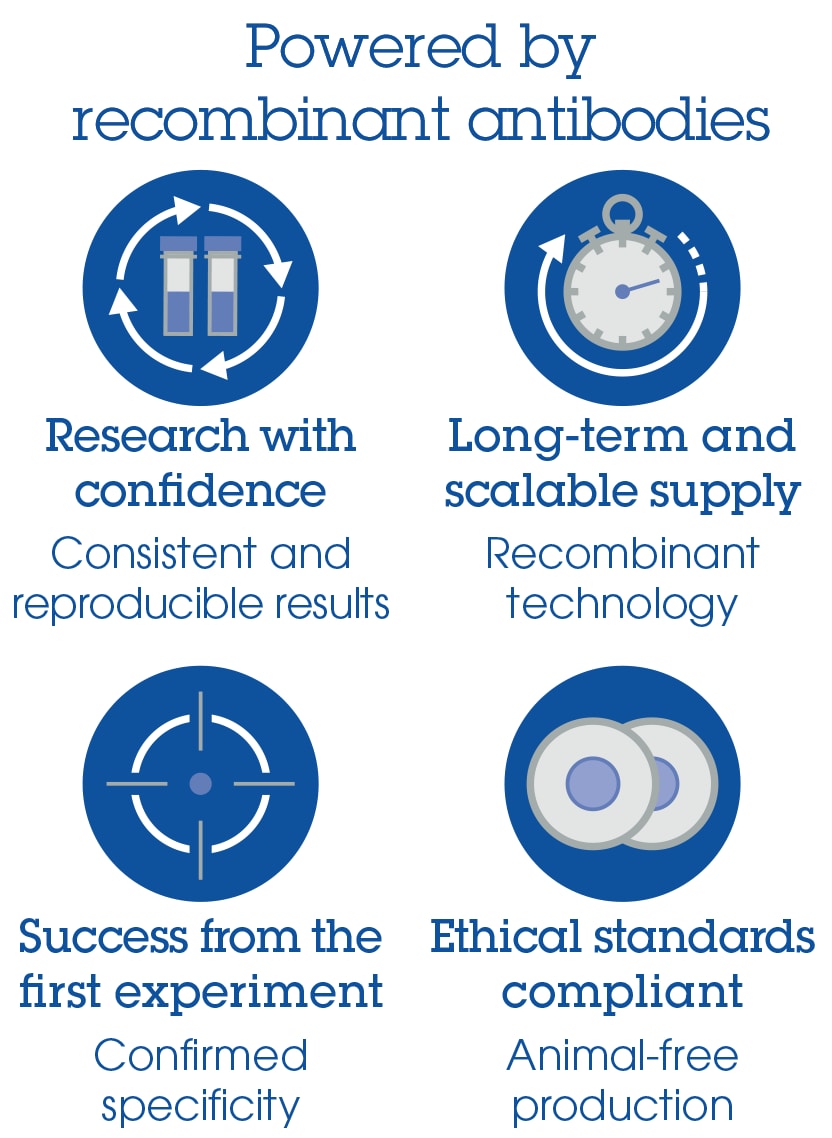Human BCMA ELISA Kit (ab263875)
Key features and details
- One-wash 90 minute protocol
- Sensitivity: 10.81 pg/ml
- Range: 18.75 pg/ml - 1200 pg/ml
- Sample type: Cell culture media, Cell culture supernatant, Cit plasma, EDTA Plasma, Hep Plasma, Serum, Urine
- Detection method: Colorimetric
- Assay type: Sandwich (quantitative)
- Reacts with: Human
Overview
-
Product name
Human BCMA ELISA Kit
See all BCMA kits -
Detection method
Colorimetric -
Precision
Intra-assay Sample n Mean SD CV% Serum 8 8.2% Inter-assay Sample n Mean SD CV% Serum 3 8.8% -
Sample type
Cell culture supernatant, Urine, Serum, Cell culture media, Hep Plasma, EDTA Plasma, Cit plasma -
Assay type
Sandwich (quantitative) -
Sensitivity
10.81 pg/ml -
Range
18.75 pg/ml - 1200 pg/ml -
Recovery
Sample specific recovery Sample type Average % Range Cell culture supernatant 109 107% - 112% Urine 109 101% - 116% Serum 103 99% - 110% Cell culture media 96 87% - 104% Hep Plasma 107 105% - 112% EDTA Plasma 111 102% - 120% Cit plasma 105 101% - 108% -
Assay time
1h 30m -
Assay duration
One step assay -
Species reactivity
Reacts with: Human
Does not react with: Cow -
Product overview
Human BCMA ELISA Kit (ab263875) is a single-wash 90 min sandwich ELISA designed for the quantitative measurement of BCMA protein in cell culture media, cell culture supernatant, cit plasma, edta plasma, hep plasma, serum, and urine. It uses our proprietary SimpleStep ELISA® technology. Quantitate Human BCMA with 10.81 pg/ml sensitivity.
SimpleStep ELISA® technology employs capture antibodies conjugated to an affinity tag that is recognized by the monoclonal antibody used to coat our SimpleStep ELISA® plates. This approach to sandwich ELISA allows the formation of the antibody-analyte sandwich complex in a single step, significantly reducing assay time. See the SimpleStep ELISA® protocol summary in the image section for further details. Our SimpleStep ELISA® technology provides several benefits:
- Single-wash protocol reduces assay time to 90 minutes or less
- High sensitivity, specificity and reproducibility from superior antibodies
- Fully validated in biological samples
- 96-wells plate breakable into 12 x 8 wells stripsA 384-well SimpleStep ELISA® microplate (ab203359) is available to use as an alternative to the 96-well microplate provided with SimpleStep ELISA® kits.
-
Notes
Tumor necrosis factor receptor superfamily member 17 (BCMA) is a receptor involved in B cell survival. BCMA activates the NF-kappa-B and JNK pathways. Aberrant expression of BCMA is observed on malignant B cells, including during multiple myeloma, Hodgkin’s lymphoma, and Waldenstrom’s macroglobulinemia.
-
Platform
Pre-coated microplate (12 x 8 well strips)
Properties
-
Storage instructions
Store at +4°C. Please refer to protocols. -
Components 1 x 96 tests 10X Human BCMA Capture Antibody 1 x 600µl 10X Human BCMA Detector Antibody 1 x 600µl 10X Wash Buffer PT (ab206977) 1 x 20ml Antibody Diluent 4BI 1 x 6ml Human BCMA Lyophilized Recombinant Protein 2 vials Plate Seals 1 unit Sample Diluent NS (ab193972) 1 x 50ml SimpleStep Pre-Coated 96-Well Microplate (ab206978) 1 unit Stop Solution 1 x 12ml TMB Development Solution 1 x 12ml -
Research areas
-
Function
Receptor for TNFSF13B/BLyS/BAFF and TNFSF13/APRIL. Promotes B-cell survival and plays a role in the regulation of humoral immunity. Activates NF-kappa-B and JNK. -
Tissue specificity
Expressed in mature B-cells, but not in T-cells or monocytes. -
Involvement in disease
Note=A chromosomal aberration involving TNFRSF17 is found in a form of T-cell acute lymphoblastic leukemia (T-ALL). Translocation t(4;16)(q26;p13) with IL2. -
Sequence similarities
Contains 1 TNFR-Cys repeat. -
Cellular localization
Cell membrane. Endomembrane system. Perinuclear Golgi-like structures. - Information by UniProt
-
Alternative names
- B cell maturation antigen
- B cell maturation factor
- B cell maturation protein
see all -
Database links
- Entrez Gene: 608 Human
- Omim: 109545 Human
- SwissProt: Q02223 Human
- Unigene: 2556 Human
Images
-
SimpleStep ELISA technology allows the formation of the antibody-antigen complex in one single step, reducing assay time to 90 minutes. Add samples or standards and antibody mix to wells all at once, incubate, wash, and add your final substrate. See protocol for a detailed step-by-step guide.
-
The BCMA standard curve was prepared as described in Section 10. Raw data values are shown in the table. Background-subtracted data values (mean +/- SD) are graphed.
-
The concentrations of BCMA were measured in duplicates, interpolated from the BCMA standard curves and corrected for sample dilution. Undiluted samples are as follows: serum 2.5%, plasma (citrate) 2.5%, plasma (heparin) 2.5%, and plasma (EDTA) 2.5%. The interpolated dilution factor corrected values are plotted (mean +/- SD, n=2). The mean BCMA concentration was determined to be 25.96 ng/mL in serum, 17.77 ng/mL in plasma (citrate), 18.02 ng/ml in plasma (heparin), and 17.02 ng/mL in plasma (EDTA).
-
 Interpolated concentrations of native BCMA in human cell culture supernatant and pooled-sex urine samples.
Interpolated concentrations of native BCMA in human cell culture supernatant and pooled-sex urine samples.The concentrations of BCMA were measured in duplicates, interpolated from the BCMA standard curves and corrected for sample dilution. Undiluted samples are as follows: U266B1 supernatant 1: 200 and urine 25%. The interpolated dilution factor corrected values are plotted (mean +/- SD, n=2). The mean BCMA concentration was determined to be 142.48 ng/mL in U266B1 supernatant and 3.41 ng/mL in pooled-sex urine.
-
Interpolated dilution factor corrected values are plotted (mean +/- SD, n=2). The mean BCMA concentration was determined to be 13.58 ng/mL with a range of 9.70 – 18.54 ng/mL.
-
To learn more about the advantages of recombinant antibodies see here.














